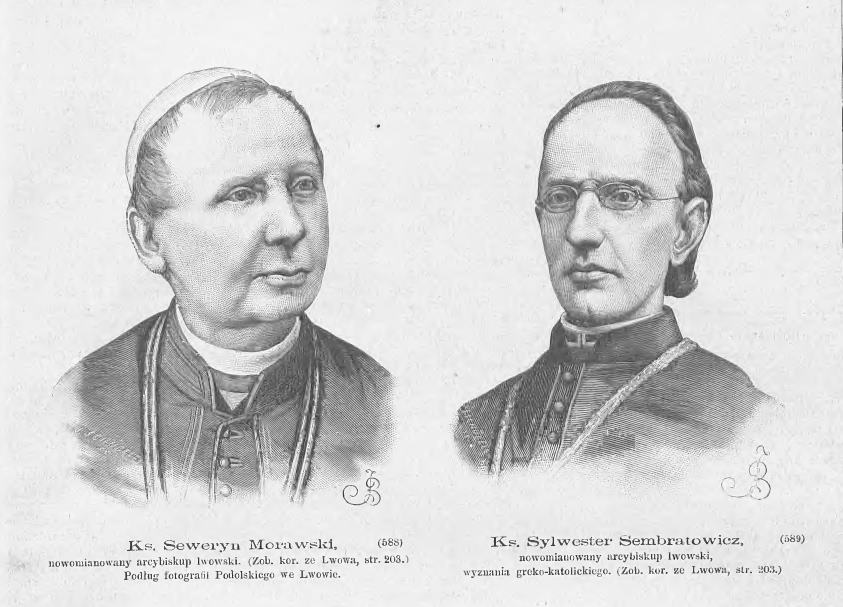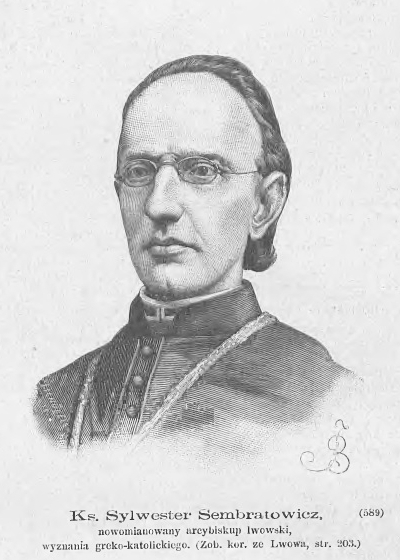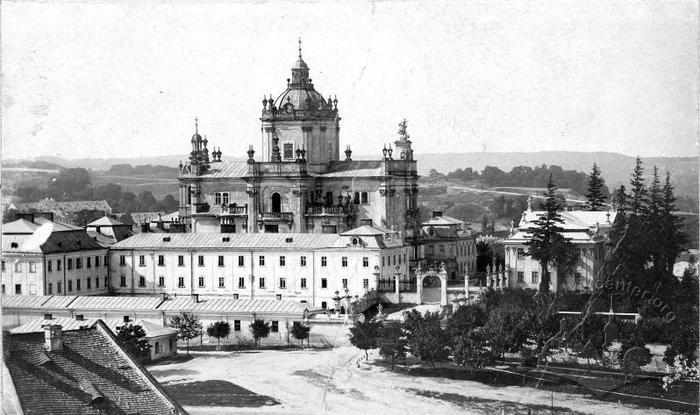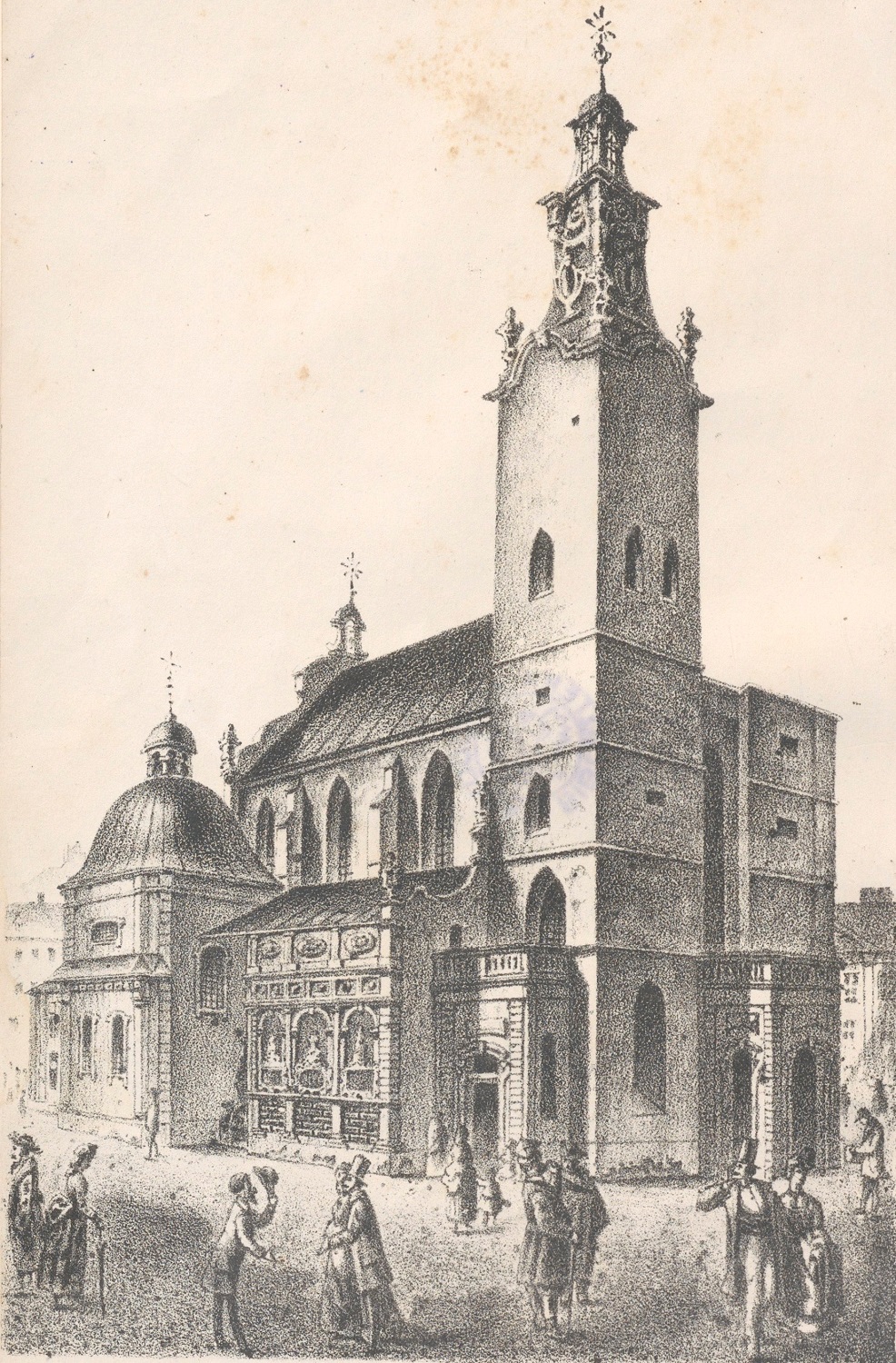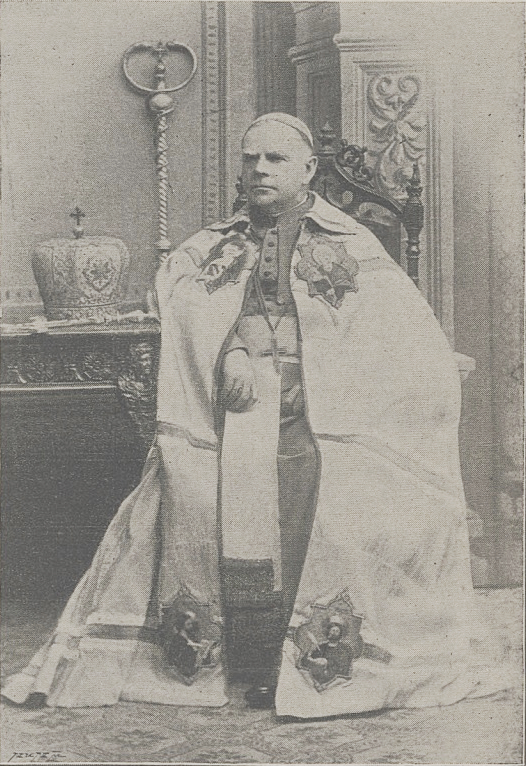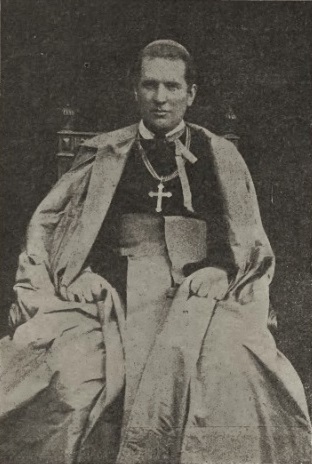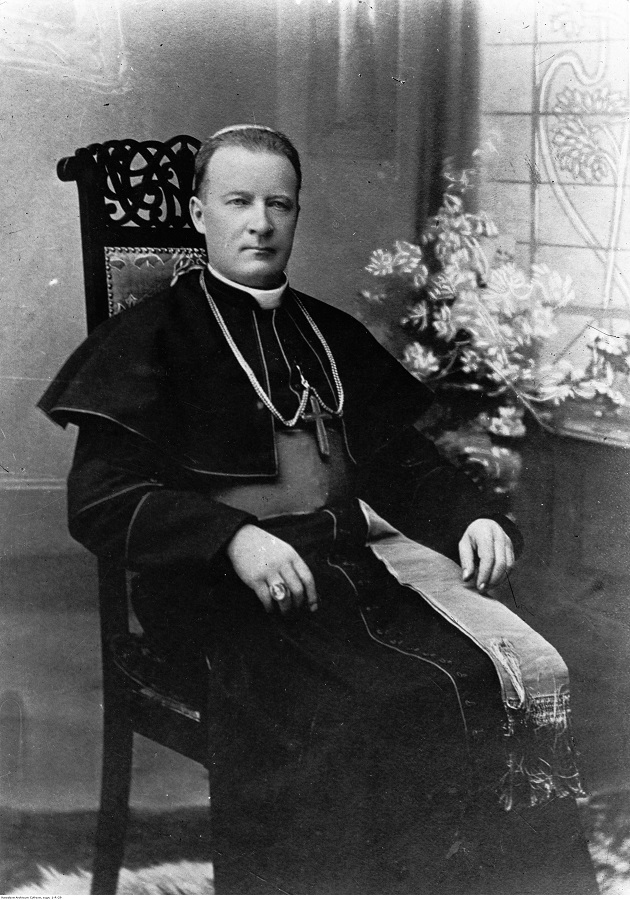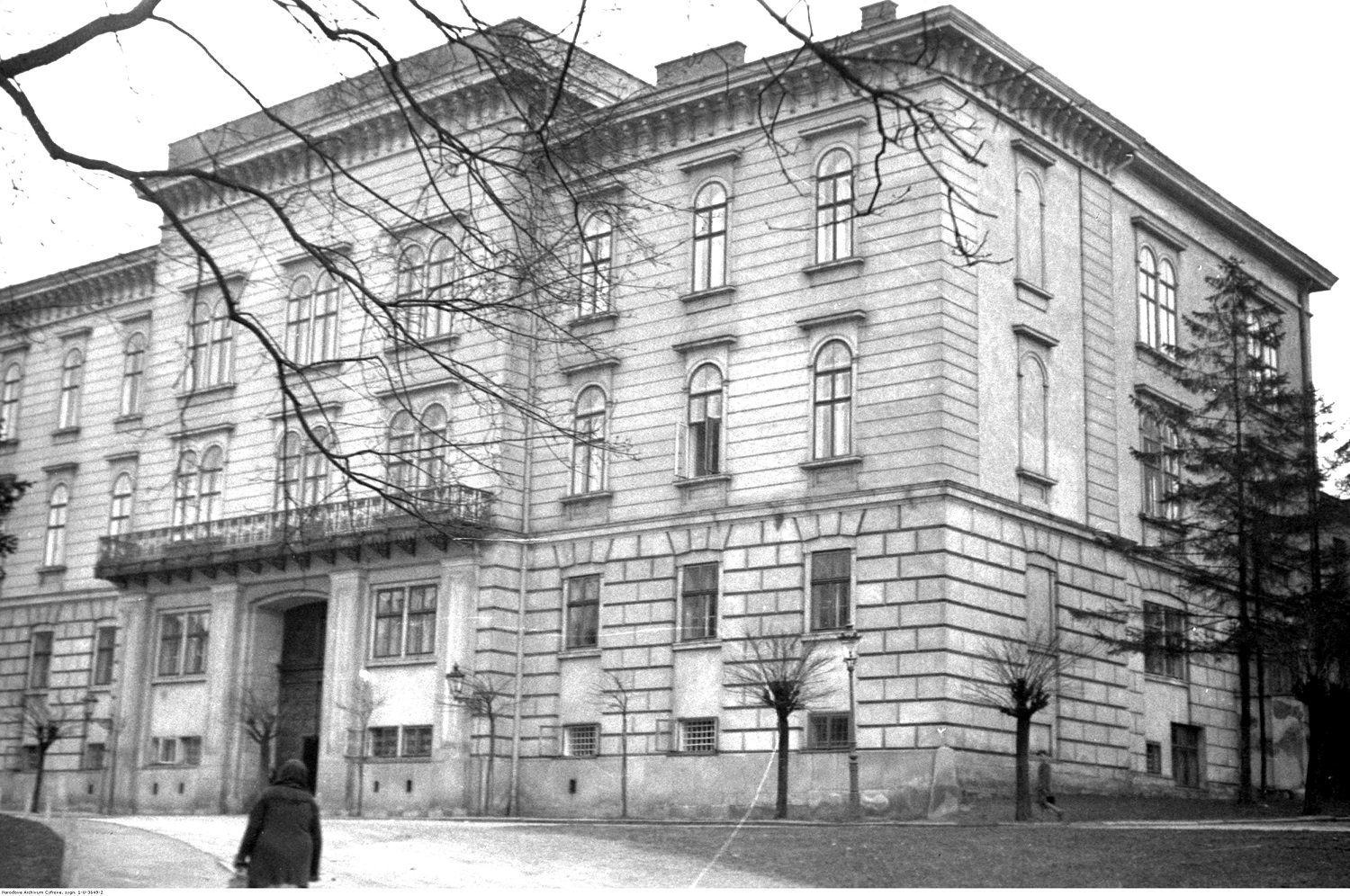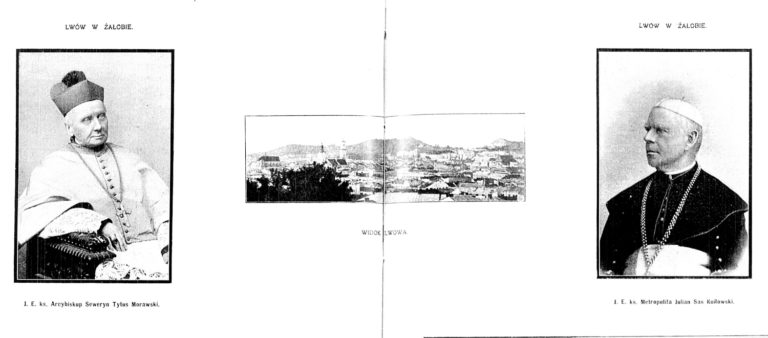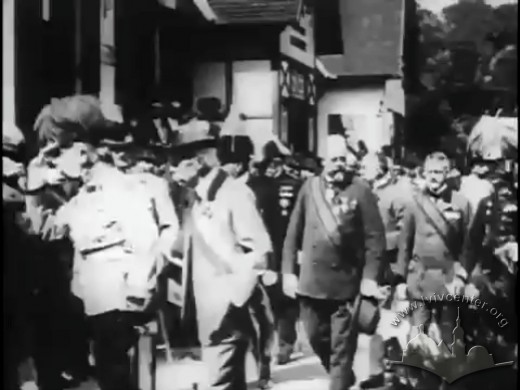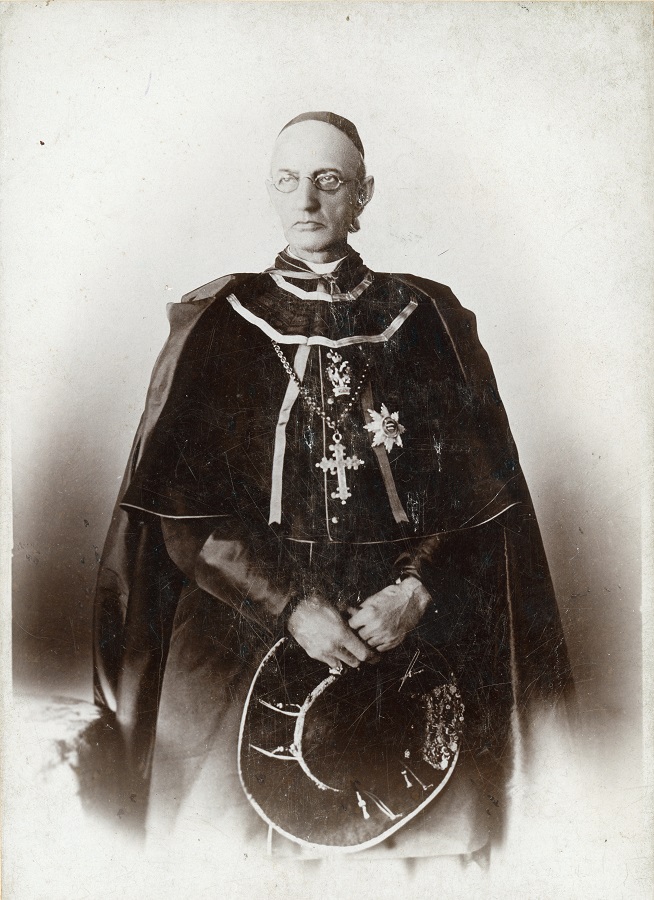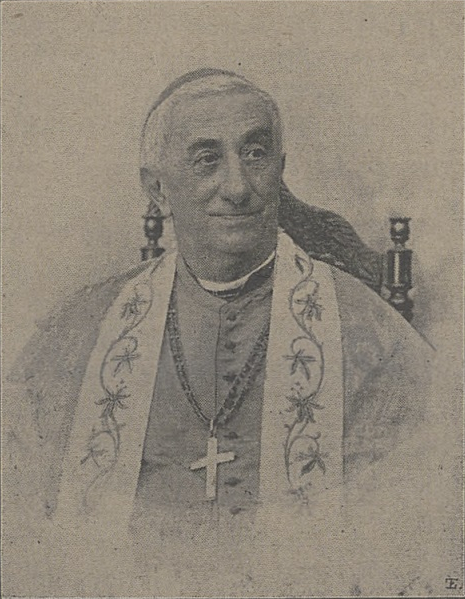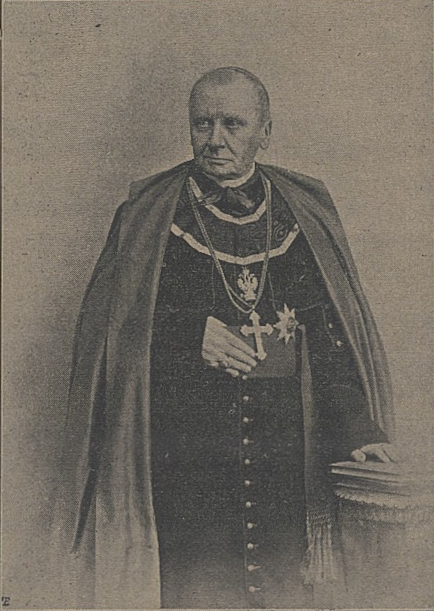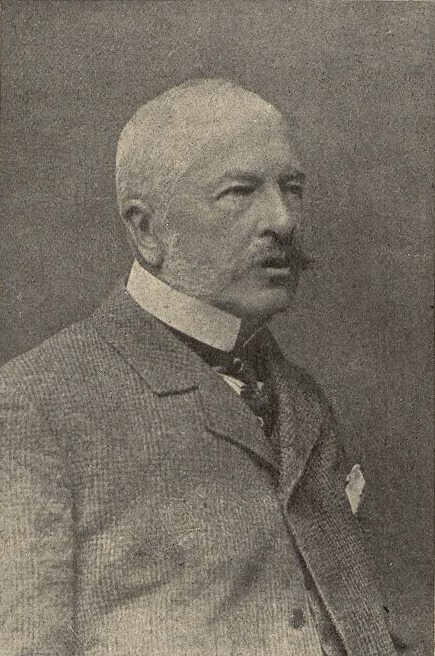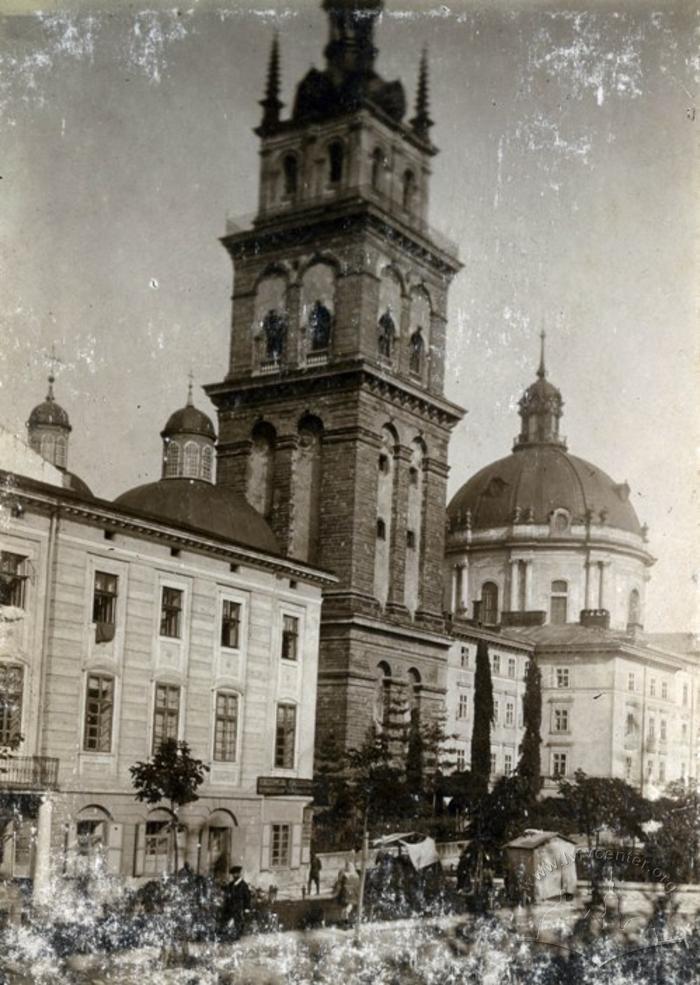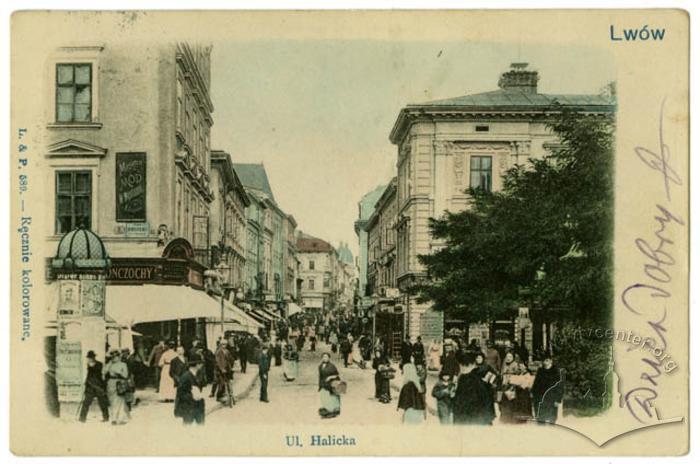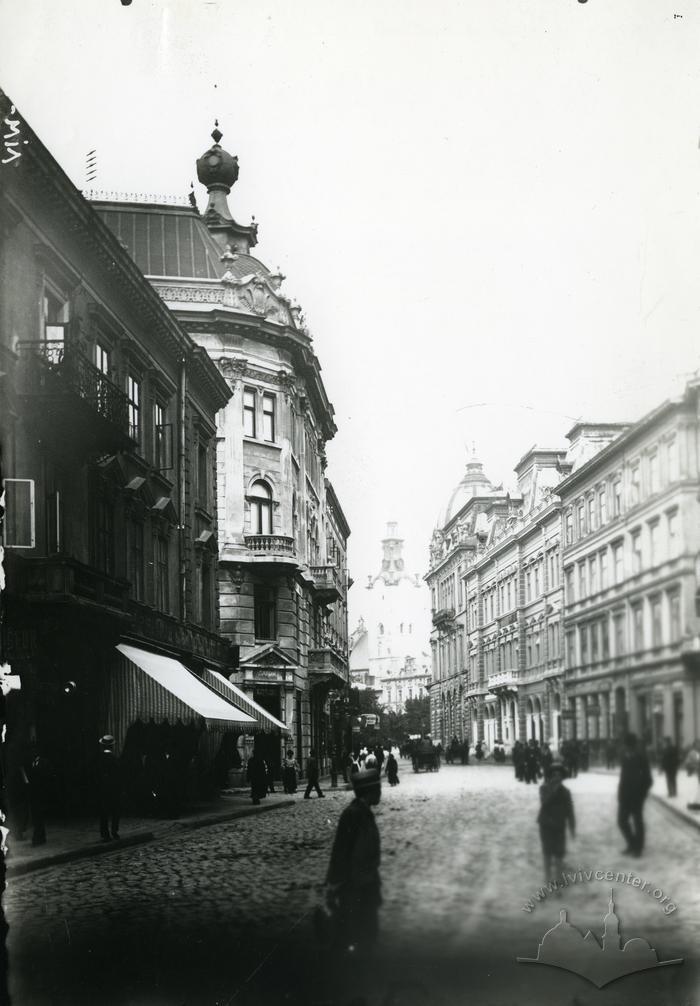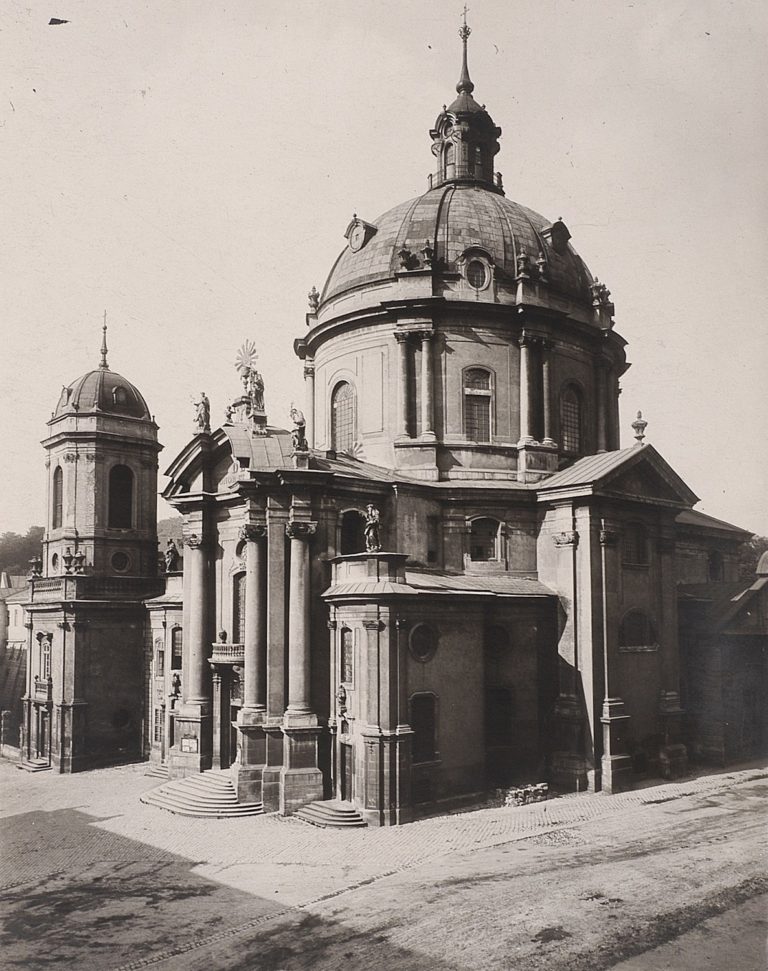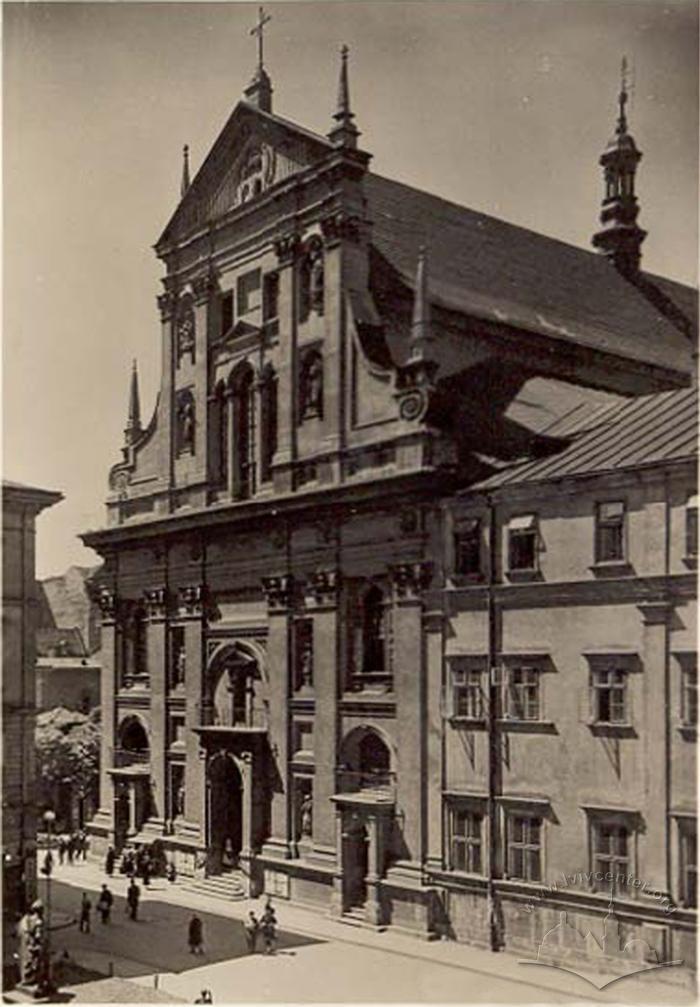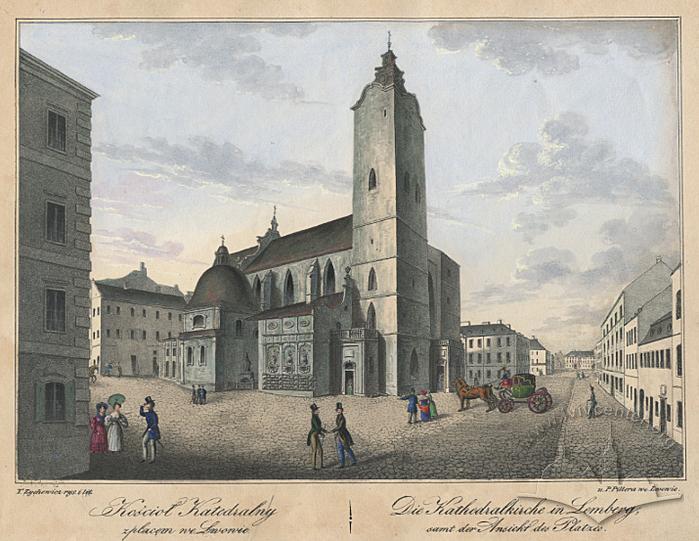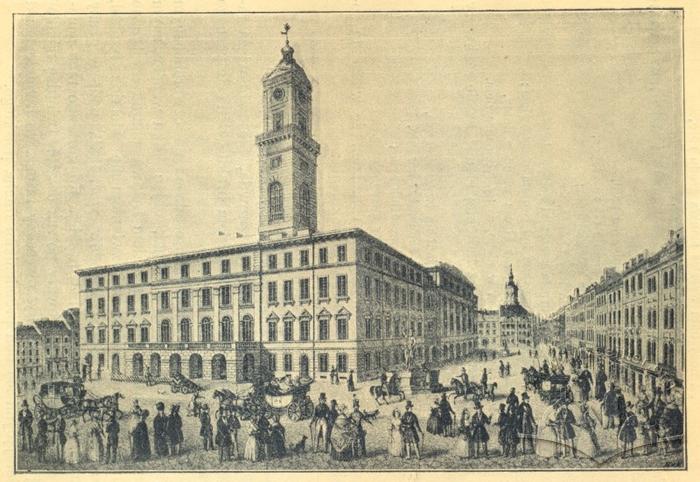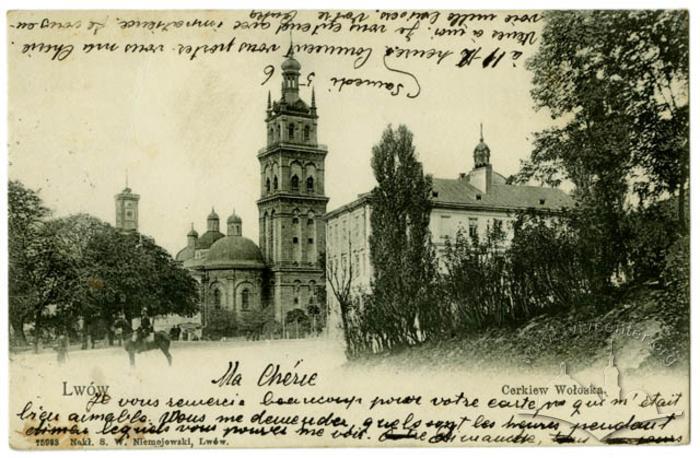Lviv was the center of three metropolitanates: Roman Catholic, Greek Catholic and Armenian Catholic. In the late 19th century, two of them became distinctly "national", which was also reflected in the ceremonial enthronements of hierarchs. The "Ruthenian" and "Polish" archbishops were perceived as "national leaders", and the rituals associated with them combined ecclesiastical and patriotic elements.
Through the reaction of the press and the involvement of the authorities (both central governing bodies and local self-government), we can comprehend the place of the clergy in the power system. The events' massive character demonstrates the popularity or unpopularity of spiritual leaders among the population, while the list of those present expresses interethnic relations or attempts to establish them.
1885. The enthronements of Sylvestr Sembratovych and Seweryn Morawski
The official inauguration of the Greek Catholic Metropolitan Sylvestr Sembratovych took place on May 5, 1885. By 8:00 "representatives of all the military and civil authorities", the City Council, the University, corporations, guilds with their banners, church brotherhoods, processions from all both Greek and Roman Catholic parish churches of Lviv and the suburbs, an infantry detachment with an orchestra, clergy and believers of both rites, as well as many villagers had thronged Ruska Street, Podwalna Street and the Rynok Square, waiting for the arrival of the Metropolitan at the Assumption church. The people lined up along the houses and on the pavements, leaving a passage for the carriage.
Sylvestr Sembratovych arrived at 8:15. In front, on a horse led by two grooms, rode a canon with the metropolitan's cross. The metropolitan himself was in a carriage accompanied by lancers. After a short service, the procession moved past the Latin cathedral, the Jesuit church and through Jagiełłońska Street to St. George's cathedral (9:00). In the vanguard, there was a military band and an infantry detachment, followed by the "corporations, guilds and parishes" mentioned above. Metropolitan Sembratovych, accompanied by the Latin and Armenian hierarchs Seweryn Morawski and Izaak Mikołaj Isakowicz, travelled in a carriage. Detachments of lancers and infantry were bringing up the rear. The march was accompanied by church bells ringing in all the churches of the city.
A procession of this kind was possible owing to good weather; the press reported that in case of rain, the same participants were to gather immediately on the Svyatoyurska (St. George's) Square.
The list of those present at the banquet, which began at 18:00 and lasted until 21:30, shows an aristocratic character of the gathering and a mutual understanding with the Poles in general and the authorities in particular. In general, it is very similar to the list of persons usually invited to meet with the emperor. There were the governor, the marshal of the Diet (Sejm), archbishops, canons, the City Council, representatives of the University and the Polytechnic, the military command, and so on. Moreover, it was about "all the estates and all the rites", as a government newspaper reported. Metropolitan Sembratovych traditionally spoke about loyalty to Rome and to the monarchy, expressed his gratitude to the governor and the provincial marshal "for taking care of the Ruthenian people", toasted the military, the president of Lviv, and the clergy of all rites. The musical accompaniment of the dinner was provided by a choir and an orchestra, which also performed a special anthem in honour of the new metropolitan. The buildings on St. George’s Hill were illuminated on that evening.
Less than two weeks later, on May 17, of 1885 the enthronement of the Latin Archbishop Seweryn Morawski took place. Although echoing the enthronement of Sylvestr Sembratovych in general terms, the ceremony itself was more modest. At 7:30, the clergy and faithful (including from the province) gathered near the Dominican monastery to meet the new archbishop. He arrived at 7:45, and after a short service, the procession proceeded to the Latin cathedral for a solemn mass. Traditionally, there were representatives of the authorities, corporations and associations.
Still before noon, Metropolitan Morawski returned to his residence on Halicka Street. Later he served at a dinner for the poor in the Sisters of Mercy convent and then visited the seminary and received delegations.
At 17:00 a banquet for 250 people started in the great hall of the Dominican monastery. The list of invited guests, in principle, repeated the list of guests of the banquet in honour of Metropolitan Sembratovych.
No less solemn was the meeting of Metropolitan Sembratovych in 1895, when he arrived in Lviv from Rome already in the status of a cardinal granted to him by the Pope. At the railway station, in addition to the clergy and members of Ruthenian societies, he was met by representatives of the City Council and the Provincial Department headed by the marshal. The Metropolitan went to St. George's cathedral in a carriage drawn by six horses, accompanied by other carriages and to the shouts of the crowd and church bells. Members of craft guilds, societies, church brotherhoods and ordinary onlookers met the metropolitan under the cathedral. The governor, the provincial marshal, the president of the city of Lviv, rectors of the University and Polytechnic, Latin and Armenian archbishops, and senior army officers were present at the divine service and the reception after it.
1899 year. Metropolitan Yulian Kuilovskyi and Bishop Andrey Sheptytskyi
The enthronement of Metropolitan Kuilovskyi in September 1899, at the insistence of the nominee himself, took place in a very modest way, the saved funds were directed to charity. The clergy, church brotherhoods and ordinary believers took part in the ceremony, which took place on the Svyatoyurska (St. George's) Square, as well as representatives of several Ukrainian associations (Yulian Kuilovskyi was considered a Polonophile, so there was no mass support from the activists). There was neither a banquet nor delegates from the authorities.
At the same time, the consecration (the enthronement took place a week later in Stanislaviv) of Count Andrey Sheptytskyi as the bishop of Stanislaviv (which also took place in September 1899 and was also limited to the territory near St. George's cathedral) was magnificent, with lots of people participating and plenty of symbols. The young count with whom the future of the Greek Catholic Church was already associated by his contemporaries at that time and whose origin (Polish aristocratic but also "of an ancient Ruthenian family") provided a wide field for fantasies and interpretations, arousing great interest in society. For example, a peasant from the Stanislaviv eparchy took part in the ordination carrying bread. Andrey's father, Count Jan Szeptycki (Sheptytskyi), was dressed in "boyar clothes", with his order hanging on a blue-and-yellow ribbon. This was supposed to symbolize the "Ruthenian nobility and the people", united during this ceremony and by the figure of the new bishop.
1901 year. Enthronement of Metropolitan Andrey Sheptytskyi and Archbishop Józef Bilczewski
The tradition of thoughtful and symbolic steps continued during the enthronement ceremony of Andrey Sheptytskyi as Metropolitan of Halych, which took place on January 17, 1901. What catches the eye is the repetition of many elements inherent in the arrival of the emperor in Lviv. On the way by train from Stanislaviv (it was a rare occasion that the newly appointed metropolitan had to get to Lviv and was not present there at the time of the enthronement), at all the stations through which the metropolitan passed, he was greeted by delegations from local parishes. When Andrey Sheptytskyi arrived at the main railway station at 12:30, he was met on the platform by local clergy, seminarians and delegates from nearby villages. When he was leaving the carriage, a choir was singing and bells were ringing in churches. In short welcoming speeches, the rite and tradition, which must be preserved, as well as "the good for the church and the people" were mentioned.
Then, approximately before 15:00, there was a carriage ride to St. George's cathedral, a solemn meeting, a festive liturgy, reading of the pope's bull in Ukrainian, and a blessing from the balcony.
On the following day, Friday, January 18, the metropolitan received delegations and held a dinner party. Among the visitors were the governor, the marshal of the Diet (Sejm), the president of the regional court, councilors of the court, as well as representatives of the school board, the railway, the post office, the higher military command, the University and the Polytechnic.
The enthronement ceremony of Latin Archbishop Józef Bilczewski on January 20, 1901 was no less symbolic. It was immediately announced as an important event in the history of "the church and the people", and the president of Lviv asked the members of the City Council to come to the celebration in national costumes.
It all started traditionally near the Dominican church, which at that time was also the place to celebrate "national anniversaries." The clergy gathered there at 7:45 Józef Bilczewski arrived before 8:00. During the procession to the Latin Cathedral, the bells of all the city's churches were ringing, while the soldiers of the 80th Infantry Regiment formed a living corridor. In the cathedral itself, seats were reserved primarily for representatives of the authorities and the elite of both the city and the province. While the enthronement ceremony of Andrey Sheptytskyi emphasized the participation of the peasants ("the people") and the family ("from the ancient boyar family"), here the elite of the Galician autonomy was involved. For example, lit candles were carried by the provincial marshal and the rector of the University, while the president of Lviv carried a silver-plated loaf of bread. From the descriptions in the press, one can see that this celebration was organized on a larger scale than in 1885.
Bilczewski, like Sheptytskyi two days before, outlined the direction of his activities in his inaugural speech. In particular, he mentioned justice and the need for social work by the clergy, as well as youth and the poor; he also donated some funds to charity.
At 17:00, a dinner for 130 persons started in the archbishops' palace (where the harmonious coexistence of the two peoples of the region was even briefly mentioned). At the same time, there was also a dinner for the lower clergy in the Dominican monastery.
Perception, interpretation, impression
The perception of the event was strongly influenced by the relationship in the "power — political activists — hierarchy" triangle. For example, assistance from the central government meant the involvement of the military and the presence of "high-ranking guests." The position of politicians affected the number of participants and the massive character of solemn events.
Enthronements of that time were perceived and described in the categories of "solemn", "modest", "majestic" and so on. And even though the denomination was at times interpreted in national categories, the mutual participation of the Poles and Ruthenians at enthronements was not limited to the clergy.
It is noticeable that the Greek Catholic celebrations with the participation of Metropolitan Sembratovych were more magnificent, and the participation of the authorities in them was greater. This probably reflected the situation when the hierarchs of the GCC were considered the only "national leaders" of the Ruthenians of Austria, or it could reflect the current political situation, in particular the appointment of the loyal and pro-Western Sembratovych as metropolitan after the Russophile trial.
Demonstration of humility and modesty was traditional for Roman Catholic hierarchs, and this was the model of behaviour shown by Seweryn Morawski and Józef Bilczewski during their enthronements. Among the Greek Catholic metropolitans, only Yulian Kuilovskyi did something similar, totally refusing the celebrations in favour of charity.
Over time (and this is precisely the period of autonomy), Greek Catholics generally became "fewer" in the urban space. This can be seen on the example of the enthronement of Metropolitan Sheptytskyi, when a solemn procession through the entire city from the Dormition church to the cathedral of St. George was not organized, instead the Metropolitan was welcomed on his journey through the entire region. Whereas the enthronement of the Latin archbishop, compared to the 1880s, was more pompous.
It looks like, comparing to the 1880s, the Greek Catholics and the Roman Catholics just switched places when it comes to assistance from the authorities; at least, this can be assumed, given the participation of the military, subordinated not to the local but to the central government.
In both cases, more "national" and "political" things can be seen, due to various small details (such as the colour of the order ribbon), the presence or absence of guests and invitees, and, most importantly, due to the words of the hierarchs themselves, who inserted openly political messages into their speeches (for example, about "enemies of the church who influenced the workers"). The support or lack of support of Greek Catholic hierarchs on the part of political activists is also noticeable, as they openly supported "nationally conscious" metropolitans and ignored those they considered "Latinizers."
The position of the contemporary press provides even more material for analysis. For example, the "Kurjer Lwowski" announced the enthronement of Andrey Sheptytskyi in three lines of text. Instead, in the case of Józef Bilczewski, the newspaper prepared an editorial composed of patriotic expectations and political reservations. From this material it follows that the Polish democrats, on the one hand, welcomed the appointment of a person of non-noble origin as archbishop. On the other hand, the idea of "organizing Catholic workers for the protection of private property" was accepted rather cautiously. At the same time, Archbishop Bilczewski was expected to "fulfill the promises of Jan Casimir", that is, to act on the scale of the all-Polish national movement.
In the case of the perception of the Metropolitan Andrey Sheptytskyi's identity in 1901, everything was even more complicated. His origin was interpreted carefully, as, although "originating from an ancient boyar family", the count actually belonged to the "Polish" aristocracy. In addition, all the vicissitudes connected to the reformation of the Basilian monastic order were still fresh.
